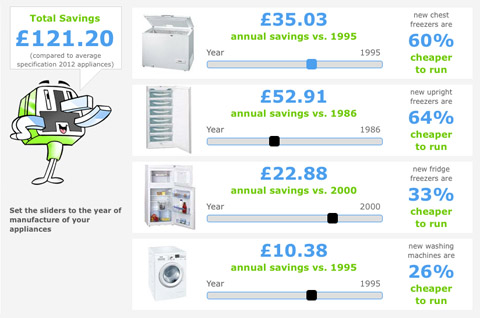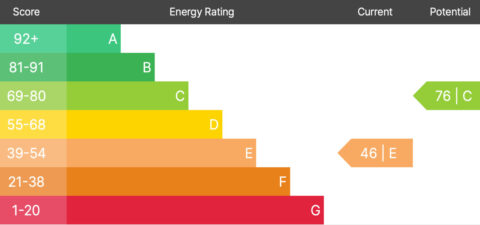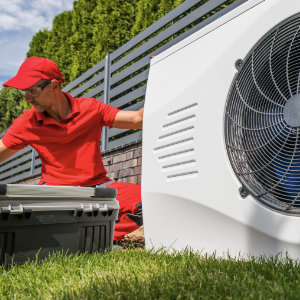As the weather turns chilly and energy prices continue to rise, our thoughts turn to how to keep warm and keep the bills down, hence the timing of the Citizens Advice Big Energy Saving Week. Fuel poverty is a very real issue for many people, but heating isn’t the only problem. Our TV’s, fridges and washing machines all impact on our electricity bill and there is something we can do about it. Firstly, take a look at your fridge-freezer – how old is it? Chances are if it is over 15 years old, it could be using 3 or 4 times more electricity than a new, more energy-efficient model. Although it seems a bit of counter-intuitive to replace something if it is working, fridges and freezers are on 24/7, so savings would be recouped quickly, certainly a quicker and cheaper option than installing double-glazing. Take a look at Sust-it’s new energy calculator for old fridges, freezers, washing machines and dishwashers to see the potential savings.
The government’s own research showed that £86 per year could be saved if electricals were switched off from stand-by; if you replace an inefficient appliance savings would be far greater. And don’t be tempted to stick the old appliance in the garage as a ‘beer fridge’, which will just increase your electricity bills! We all need to be much more clued up when it comes to buying new electrical appliances and about our existing appliances. Even with the introduction of energy labels, very few people consider the long term running costs of electrical appliances before they buy, in the same way they would if buying a car. This fact is backed up by a recent report by the University of Sussex, Efficient Household Appliances: A field study of the contribution of appliance replacement and consumer behaviour to reducing energy use, calling for “Clearer information relating the energy rating of new appliances to the cost saving potential”, something Sust-it has providing since 2007. Their study, although small, also demonstrated that in all cases appliance replacement brought about savings, they claim that by replacing a 5-10 year old fridge freezer with a fairly standard up-to-date (A or A+) model, savings of between 40% and 60% could be made and, more importantly, additional savings could be made when consumers were asked to adjust their behaviour. Tests showed that when consumers switched to a lower temperature wash on washing machines it typically yielded energy savings of between 35% and 59%.
To some households the cost saving will be not important to them, but with an estimated 15 million old freezers, fridges and washing machines (ten or more years) still being used in UK homes, there must be economic as well as an environmental reason for encouraging the replacement of inefficient appliances. Old appliances should, of course, be recycled according to the WEEE guidelines.
References:
‘Powering the Nation’ published June 2012; study of household electricity usage, (commissioned by Defra, DECC and Energy Saving Trust at a cost of £850,000) Showed savings of up to £86 per year could be made by simply by turning off electricals when they are not in use.
The University of Surrey Efficient Household Appliances Pilot Study, A field study of the contribution of appliance replacement and consumer behaviour to reducing energy use. October 2012 This study was sponsored by the Association of Manufacturers of Domestic Appliances (AMDEA


































